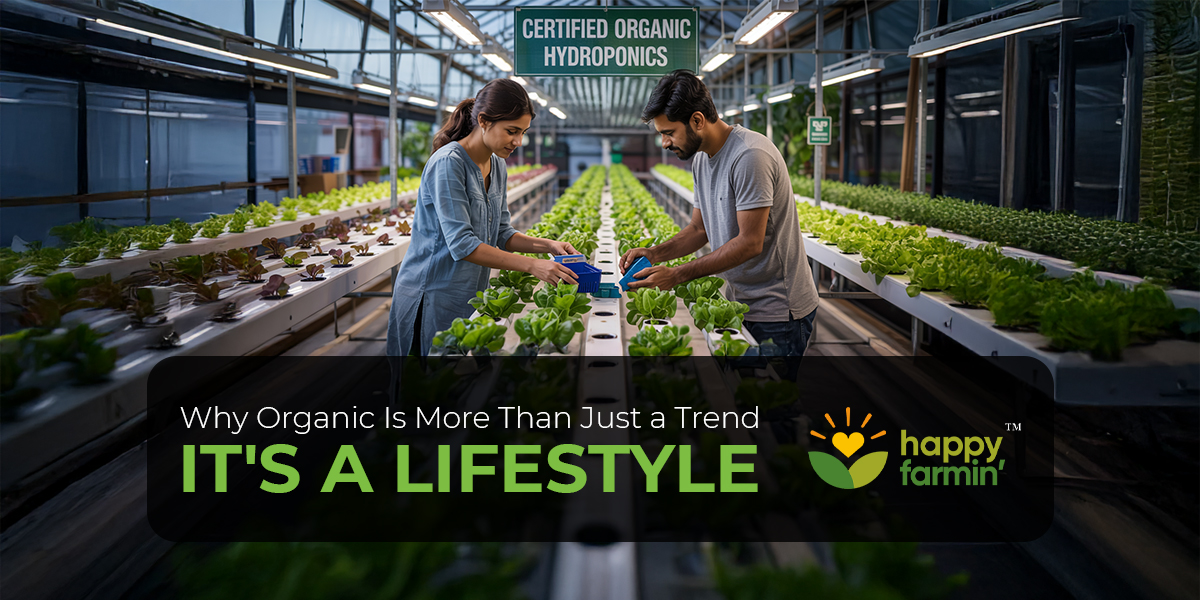
In today’s fast-paced urban life, the organic movement is no longer just a trend—it’s a conscious lifestyle choice. With rising concerns about pesticide-laden produce, water scarcity, and food miles, city dwellers are turning inward—literally—to find cleaner, more sustainable food solutions. Enter indoor hydroponics: a revolutionary way to grow fresh, organic vegetables right inside your apartment, kitchen, or balcony without soil or chemicals. This modern method isn’t just about convenience—it’s about reclaiming control over what we eat and how we live. Indoor hydroponic systems allow anyone, regardless of space or experience, to produce high-quality greens year-round while minimizing waste and environmental impact. As more people embrace mindful consumption, hydroponic gardening offers a seamless blend of technology, health, and sustainability.
The Urban Shift: How Indoor Hydroponics Redefines Organic Living
In the midst of bustling city life, where green spaces are limited and fresh produce often travels hundreds of miles before reaching our plates, hydroponics emerges as a beacon of hope. This innovative method of farming offers a solution that aligns perfectly with the modern urban lifestyle. By enabling the cultivation of plants without soil, hydroponics provides city dwellers with the opportunity to grow their own organic vegetables in the comfort of their homes. This shift not only addresses the lack of space but also empowers individuals to take control of their food sources, ensuring that what they consume is fresh, nutritious, and free from harmful chemicals.
The concept of hydroponics may seem futuristic, but its roots can be traced back to ancient civilizations. The Hanging Gardens of Babylon, one of the Seven Wonders of the Ancient World, is believed to have utilized a form of hydroponics. Today, this age-old technique has been refined and adapted to suit contemporary needs, making it accessible to anyone with a bit of space and a desire to grow their own food. From small countertop systems to larger setups that can occupy an entire room, hydroponics offers a versatile solution for urban gardening enthusiasts.
In a world where urbanization is rapidly increasing, and green spaces are becoming scarce, hydroponics offers a sustainable and practical alternative. Happy Farmin’ brings up their flagship product: The Happy Farmin’ Kit which transforms urban eating habits into healthier and more sustainable version of living.
Chemical-Free Starts Here: The True Meaning of ‘Organic’ in Hydroponics
The term ‘organic’ has become a buzzword in recent years, often associated with health, wellness, and environmental consciousness. However, the true essence of organic farming lies in its methods, which prioritize the use of natural processes and substances over synthetic ones. Hydroponics embodies this principle by allowing plants to grow in a controlled, chemical-free environment. Unlike traditional farming, which often relies on pesticides and herbicides to manage pests and weeds, hydroponics makes optimal utilization of water resources along with beneficial nutrients to maintain plant health without the use of toxic pesticides.
One of the key advantages of hydroponics is its ability to eliminate the need for soil, which can harbor pests and diseases. Instead, plants are grown in nutrient-rich water, which provides all the essential minerals and elements they need to thrive. This method not only reduces the risk of contamination but also ensures that plants receive a consistent supply of nutrients, leading to healthier and more robust growth. Additionally, the absence of soil means that hydroponic systems can be set up anywhere indoors, making them ideal for urban environments where space is limited.
By choosing hydroponics, individuals can ensure that their produce is truly organic, free from harmful chemicals and genetically modified organisms. This not only contributes to better health but also supports sustainable agricultural practices. Hydroponics allows for precise control over the growing environment, enabling gardeners to use natural methods to enhance plant growth and resilience. From using organic fertilizers to incorporating companion planting techniques, hydroponic gardeners can create a thriving ecosystem that promotes biodiversity and sustainability.
Water-Wise, Waste-Free: Sustainable Living in Every Drop
One of the most compelling reasons to adopt hydroponics is its remarkable efficiency in water usage. Traditional soil-based agriculture can be extremely water-intensive, with a significant amount of water lost to evaporation and runoff. In contrast, hydroponic systems are designed to recycle and reuse water, making them far more sustainable. The closed-loop systems commonly used in hydroponics ensure that water is recirculated, reducing overall consumption by up to 90% compared to conventional farming methods.
This water-wise approach is particularly crucial in the face of growing concerns about water scarcity. As global populations continue to rise and climate change exacerbates drought conditions, finding ways to conserve water is more important than ever. Hydroponics offers a viable solution, allowing for the production of fresh, organic produce with minimal water usage. This not only conserves a precious resource but also reduces the environmental impact associated with traditional farming practices.
In addition to being water-efficient, hydroponics is also virtually waste-free. Traditional agriculture often results in the loss of nutrients through soil erosion and runoff, leading to the need for synthetic fertilizers to replenish the soil. Hydroponic systems, on the other hand, deliver nutrients directly to the plant roots in a controlled manner, ensuring that nothing goes to waste. This precise nutrient management not only promotes healthier plant growth but also minimizes the environmental footprint of food production.
Freshness on Demand: From Hydroponic Grow Tray to Table
Imagine plucking a crisp lettuce leaf or a vibrant cherry tomato right off the plant and adding it directly to your meal. This is the reality that hydroponics brings to urban living. The ability to grow fresh produce on demand is one of the most appealing aspects of hydroponic gardening. It allows individuals to enjoy the freshest, most nutrient-dense vegetables possible, straight from their own homes. This immediacy not only enhances the flavor and nutritional value of the food but also reduces the need for transportation and storage, which can degrade the quality of produce over time.
Hydroponic systems are designed to maximize space and efficiency, making it possible to grow a wide variety of vegetables and herbs in a compact area. From leafy greens like spinach and kale to fragrant herbs like basil and mint, the possibilities are endless. With the right setup, you can have a continuous supply of fresh produce throughout the year, regardless of the season. This year-round availability is particularly beneficial for those living in regions with harsh climates or limited access to fresh produce.
The convenience of having a personal indoor garden cannot be overstated. It eliminates the need for frequent trips to the grocery store and allows individuals to have complete control over their food supply. This not only saves time and money but also ensures that you always have access to fresh, organic produce. By integrating hydroponics into your lifestyle, you can enjoy the unparalleled satisfaction of growing your own food while contributing to a more sustainable and self-sufficient way of living.
Wellness Begins at Home: Clean Food for Clean Living
The adage "you are what you eat" holds more truth than ever in today's world, where the quality of our food directly impacts our health and well-being. Hydroponics empowers individuals to take charge of their nutrition by growing clean, organic produce right at home. This method eliminates the uncertainties associated with commercially grown vegetables, such as exposure to pesticides, herbicides, and other harmful chemicals. By ensuring that the food you consume is free from contaminants, hydroponics promotes a healthier lifestyle and greater peace of mind.
Beyond the obvious health benefits, hydroponic gardening also offers therapeutic advantages. The act of nurturing plants and watching them grow can be incredibly rewarding and stress-relieving. It provides a sense of accomplishment and connection to nature, which can be particularly beneficial for those living in urban environments. Gardening has been shown to improve mental health, reduce anxiety, and promote overall well-being, making hydroponics a valuable addition to any home.
Moreover, the nutritional quality of hydroponically grown produce is often superior to that of store-bought vegetables. Because hydroponic systems provide plants with a balanced and consistent supply of nutrients, the resulting produce is rich in vitamins, minerals, and antioxidants. This enhanced nutritional profile supports a healthy diet and boosts the body's ability to fight off diseases and maintain optimal health. By incorporating hydroponics into your daily routine, you can enjoy the benefits of clean, nutrient-dense food that supports your overall wellness.
Join the Organic Movement: Where Tech Meets Conscious Choices
The rise of hydroponics represents a convergence of technology and conscious living. As more people become aware of the environmental and health impacts of their food choices, hydroponics offers a practical and innovative solution. This method leverages advanced technology to create optimal growing conditions, allowing individuals to produce high-quality, organic food in their own homes. From automated nutrient delivery systems to LED grow lights, Brio hydroponics introduces the Happy Farmin’ Kit with cutting-edge technologies that simplify the growing process at homes and promotes healthier eating.
Joining the hydroponic movement means embracing a lifestyle that values sustainability, self-sufficiency, and mindful consumption. It encourages individuals to think critically about where their food comes from and how it is produced. By growing their own vegetables, people can reduce their reliance on industrial agriculture, which is often associated with environmental degradation, excessive water use, and chemical pollution. Hydroponics offers a sustainable alternative that aligns with the principles of organic farming and promotes a healthier planet.
Conclusion: Embracing a Greener Future with Hydroponics
As we navigate the complexities of modern life, the importance of sustainable and healthy living becomes increasingly apparent. Hydroponics offers a tangible way to embrace these values by transforming the way we grow and consume food. It empowers individuals to take control of their nutrition, reduce their environmental impact, and reconnect with nature, even in the midst of urban environments. By integrating hydroponics into our daily lives, we can enjoy the benefits of fresh, organic produce while contributing to a more sustainable and self-sufficient future.
The journey towards a greener lifestyle starts with small, conscious choices. Whether it’s setting up a simple hydroponic system in your kitchen or dedicating a corner of your apartment to a lush indoor garden, every step counts. Hydroponics makes it possible to grow a wide variety of vegetables and herbs, providing year-round access to clean, nutritious food. It also fosters a deeper appreciation for the natural world and the intricate processes that sustain life, encouraging a holistic approach to health and wellness.
In conclusion, hydroponics is much more than a fleeting trend—it’s a lifestyle transformation that aligns with the principles of sustainability, health, and mindful consumption. By adopting hydroponics, we can create a brighter, greener future for ourselves and for generations to come. Let’s embrace this innovative method of gardening and take a step towards a healthier, more sustainable world.
Get your Happy Farmin’ Kit Today!
